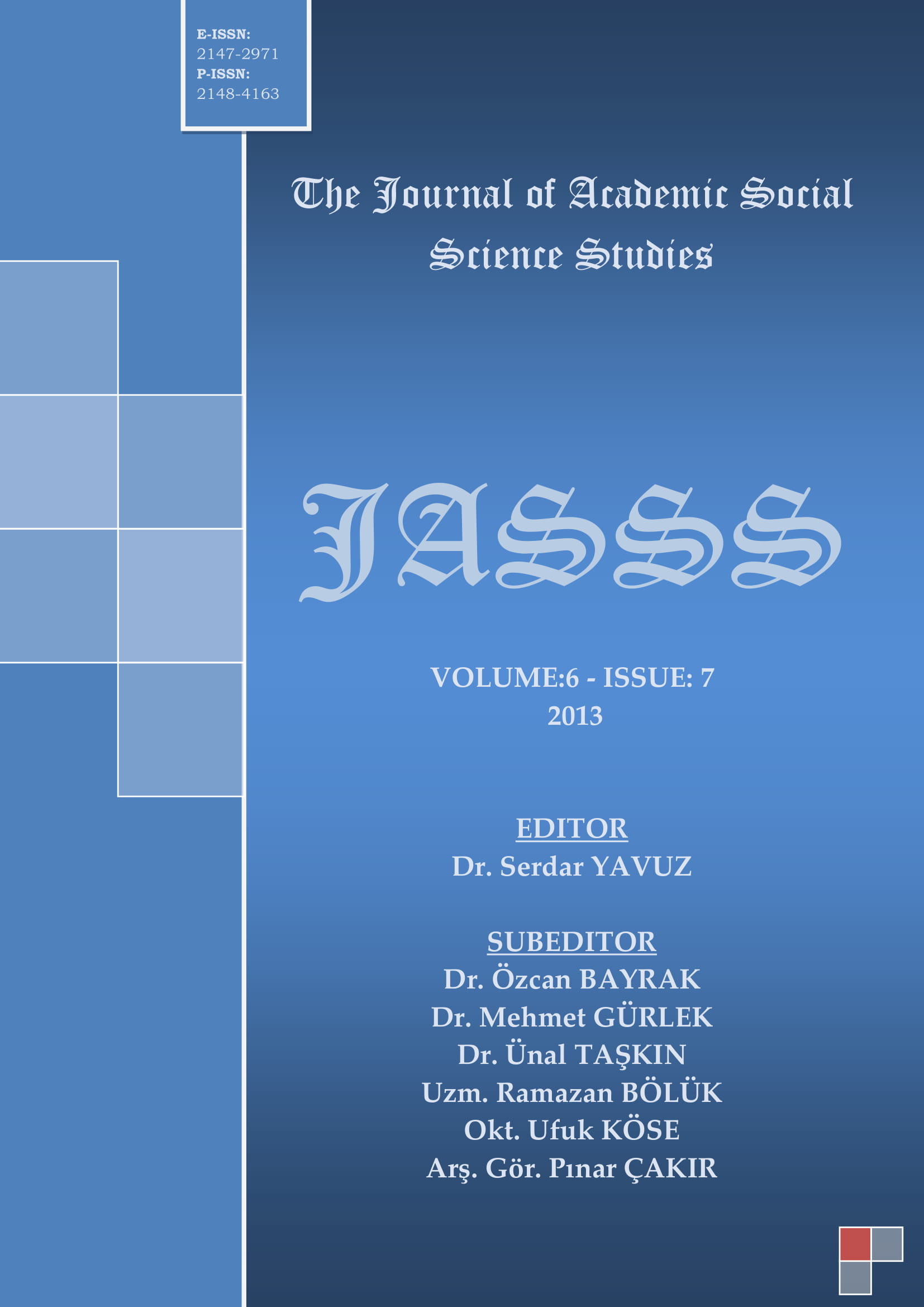Author :
Abstract
Okul öncesi eğitim, çocuğun doğduğu günden temel eğitime başladığı güne kadar geçen süreyi içine alan, bedensel, psiko-motor, sosyal-duygusal, zihinsel ve dil gelişimlerinin büyük ölçüde tamamlandığı, kişiliğin şekillendiği, ailelerde ve kurumlarda verilen eğitim süreci olarak tanımlanmaktadır. Bu dönemde okul öğrenmelerinin evde devam ettirilmesi, informal öğrenme fırsatlarının değerlendirilmesi için ailelerin çocuklarıyla okul dışında yaptıkları matematik çalışmalarının ve okul öncesi dönem matematikle ilgili bilgi düzeylerinin ortaya konması önem taşımaktadır. Bu araştırmada okul öncesi dönem çocukların okul dışı (informal) matematik öğrenme süreçlerinin incelenmesi amaçlanmıştır. Araştırmanın deseni nitel durum çalışması desenidir. Araştırmanın örneklemini seçilen beş anasınıfından toplam 150 çocuk ve aileleri oluşturmaktadır. Örneklemin belirlenmesinde “Kolay ulaşılabilir durum örneklemesi” kullanılmıştır. Araştırma verilerinin tamamı, araştırmacılar tarafından geliştirilen ve açık uçlu sorulardan oluşan “Yarı Yapılandırılmış Görüşme Formu” ile elde toplanmıştır. Verilerin analizinde yüzde, frekans değerleri ile içerik analizi kullanılmıştır. Araştırma sonucunda çocukları okul öncesi eğitime devam eden ailelerin %40'ının okul öncesi dönem matematiğin içeriği hakkında kısmen bilgisinin olduğu, çocukları okul öncesi eğitime devam eden ailelerin önemli bir kısmının okul dışında matematik etkinliği yapmadıkları, ailelerin büyük bir kısmının okul dışı öğrenmelerin matematik gelişimine katkı sağladığına inandıkları, okul dışı matematik öğrenmelerinde en çok oyunlardan yararlandıkları, en çok sayma sayma ve geometri etkinlikleri yaptıkları sonucuna ulaşılmıştır.
Keywords
Abstract
Pre-school education is defined as a pocess of education which covers the time from the day a child is born to the day a child starts school and which are given by institutions and families. In this prcess, a child mostly completes his physical, psycho-motor, social-emotional, cognitive and language development. In order for school-learning to continue at home and informal learning opportunites to be seized, it is of great importance to understand mathematics activities which parents informally do with their children and their level of knowledge of pre-school mathematics. The aim of this study is to deal with the process of pre-shool childen’s informal mathematics learning. The form of the study is the form of a qualitative case study. In the sample of the study were involved totally 150 children from the five kindergarten-clasrooms elected and their parents. ‘Easily accesible case sample’ was used fort he identification of the sample. All the research-data were obtained through semi-structured interview form which was developed by researchers and which consists of open-ended questions. For the anayesis of the data obtained, percantage, frequency values and content analyesis were used. The results obtained from the study indicated that 40% of the families, whose children receive pre-school education, were partly informed of the content of pre-school mathematics, a significant number of the families, whose children attend pre-school education, were not involved in any informal mathematics activities. The results obtained also showed that a great number of the families believed that informal leaarning of any kind positively contributed to children’s mathematical development, these families mostly benefited from games during informal mathematics learning and that they mostly did counting and geometry exercises.





